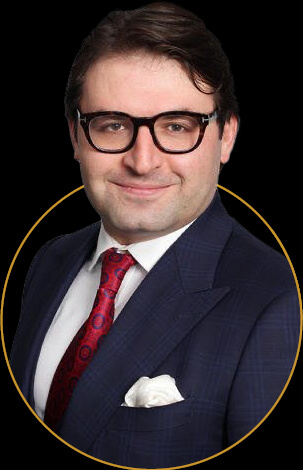Sims, a global leader in metal recycling, was founded in 1917 and listed on the ASX in November 1991. Sims trades under the ASX code “SGM”. Today the Group is at the forefront of the circular economy and has positioned itself as a leader in the municipal recycling sector. Sims employs 4,600 people who operate from more than 160 facilities across 13 countries. Its business model is to focus on sustainability, through metal recycling and providing circular solutions for the technology industry, as well as being an emerging leader in renewable energy.
Variable demand for global scrap metal, a shortage of supply and increased buy-side competition from scrap metal merchants around the world have meant a tough FY24 for Sims.
Soft global manufacturing activity combined with an increased average age of vehicles and household items like washing machines and refrigerators has contributed to lower post-consumption scrap metal intake. This occurs because materials are recycled when new replacements are purchased. This reduction in scrap metal supply has intensified buy-side pressures, making scrap metal input more expensive and pressuring margins for Sims.
The slowing world economy was reflected in lower Chinese new building activity which contracted by 24 percent between January and May 2024 compared to the prior corresponding period. Consequently, Chinese steel exports into global metal markets reached a multi-year high in calendar years 2023 and 2024, putting downward pressure on seaborne markets.
This weakness was partly offset by strength in the scrap copper market which recorded price gains in the second half of FY24 driven by positive sentiment surrounding the copper’s critical role in global decarbonisation.
In FY24 Sims’ Underlying Net Profit After Tax was a loss of $45 million, compared to $157 million in the prior year, representing a decline of 129 percent. A fully franked final dividend of 10 cents per share, down from 21 cents or 52 percent compared to the corresponding period, will be paid on 16 October.
Despite recent external volatility, the long-term fundamentals that underpin scrap metal recycling are positive. It is the irreversible mega-trend toward global decarbonisation that provides investor confidence in the long-term fundamentals for scrap metal demand. This is because the supply of recycled materials in the form of scrap metal and re-purposed products supports decarbonisation in several ways.
Global decarbonisation of steelmaking is dependent on the growth of Electric Arc Furnaces which use 100 percent scrap metal, and an electric current carried through graphite electrodes to create an arc that produces all types of steel. The alternative is a Blast Furnace that uses iron ore as the input material and coking coal as the main energy source. A Blast Furnace emits a large amount of carbon dioxide, is more capital-intensive than an Electric Arc Furnace and takes up more space.
The International Energy Agency has stated that to achieve carbon net zero by 2050, 53 percent of steelmaking will need to be undertaken using Electric Arc Furnaces. Currently, 35 percent of global steel production is done using an Electric Arc Furnace. This greater use of Electric Arc Furnaces in steelmaking is a structural change in the steelmaking industry that will necessarily require more scrap metal as the primary feedstock.
The deployment, recycling and refining of IT equipment and management and recycling of e-waste in a responsible and environmentally sustainable way is also positive for Sims. The volume of processed repurposed units grew by 60 percent to 6.1 million re-purposed units in FY24 compared to the prior year. The underlying EBITDFA of the Sims Lifecycle Services business unit in FY24 was $30.5 million.
Sims may continue to face headwinds in the short term as the Chinese economy transitions from construction-led growth to a focus on advanced technology and manufacturing to sustain its economic development. In the short term, this will reduce Chinese steel demand. However, the sheer magnitude of the Chinese economy ensures that it will be a major contributor to steel demand for decades to come. This decline is compensated for to a degree by global economic growth pivoting to India.
Over the medium and long term metal-intensive infrastructure spending will support demand for steel and the fundamental and irreversible shift to decarbonisation in steelmaking will result in increased use of recycled metal by steel producers to meet carbon emission targets. Sims is set to benefit from this trend as car manufacturers, consumer goods brands and property groups demand a higher proportion of steel made from scrap metal to be used in their products.
Cloud-computing demand is likely to continue rising, resulting in IT recycling while the global decarbonisation of steelmaking will drive the demand for recycled metals for decades to come. This ensures a positive long-term earnings outlook for Sims’ shareholders.

Michael Kodari is a globally recognised investor, philanthropist, and leading financial markets expert, renowned for his exceptional performance. With a strong foundation in financial markets, Michael has advised leading financial institutions and governments.
Chifley Tower, 2 Chifley Square,
Sydney NSW 2000
1300 854 151
© 2025 KOSEC | Kodari Securities Pty Ltd | ABN 90 147 963 755 | FSG | Terms & Conditions | Disclaimer & Legal
© 2025 KOSEC | Kodari Securities Pty Ltd
ABN 90 147 963 755
KOSEC - Kodari Securities does not provide any investment advice, nor is anything mentioned an offer to sell, or a solicitation of an offer to buy any security or other instrument. Anything discussed is for informational purposes only and does not address the circumstances or needs of any particular individual or entity. Investing in the stock market is high risk. Under no circumstances should investments be based solely on the information provided. We do not guarantee the security or completeness of information on this website and are not held liable. Kodari Securities PTY Ltd trading as KOSEC is a corporate authorized representative (AFSL no.246638) which is regulated by the Australian securities and investment commission (ASIC).